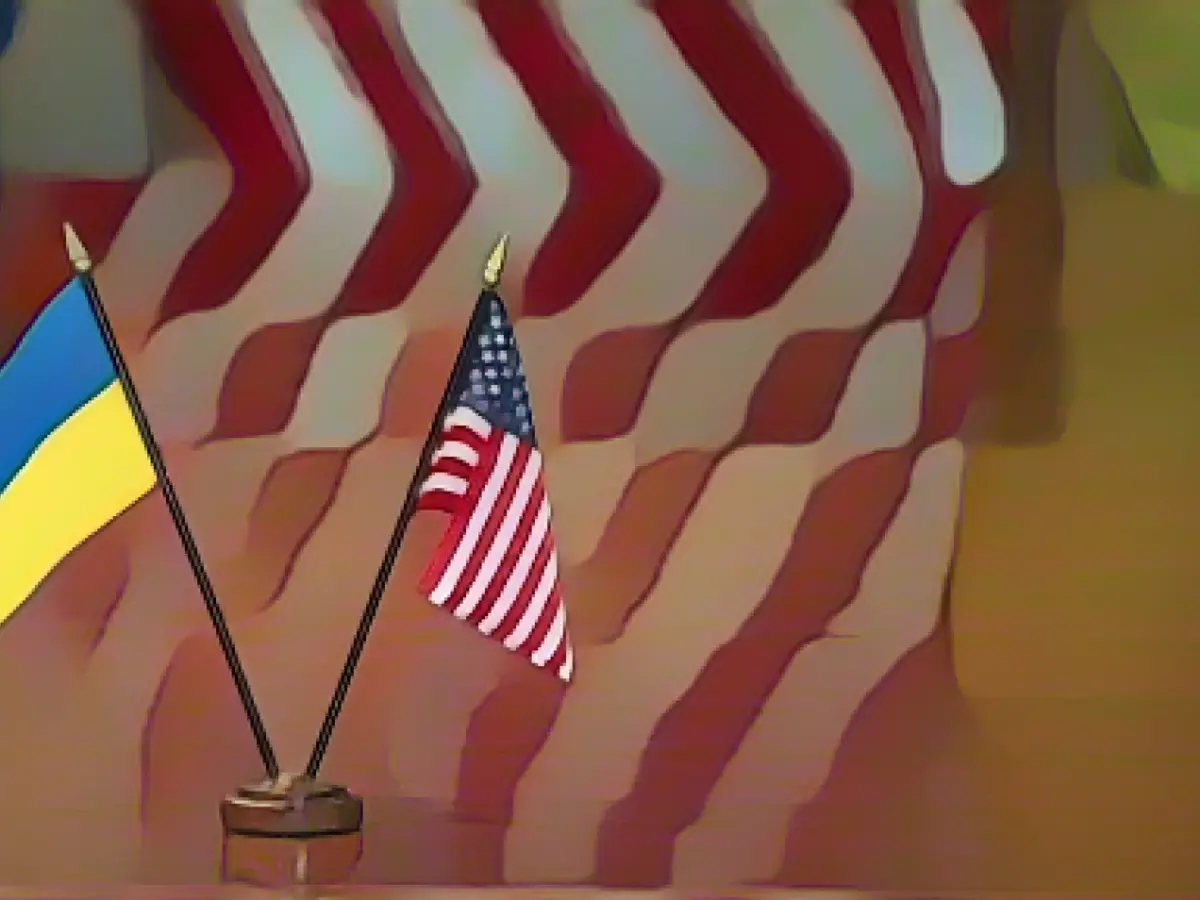Russia's War Against Ukraine: A Dire Situation Amidst Ongoing Support
As Ukraine braces for further battles, the USA and G7 nations offer military aid and support. Despite this, a significant financial commitment from Washington remains elusive for Kyiv, with President Biden urging Congress to approve new aid. Biden emphasized, "This cannot wait. Congress needs to approve additional funding for Ukraine before it goes on vacation – it's that simple."
Andriy Yermak, the head of the Kiev presidential office, outlined the dire consequences for Ukraine if the war persists without US assistance. Yermak and a delegation of top Ukrainian politicians are currently engaging with US partners to bypass potential aid halt obstacles.
On Wednesday, a meeting between US Defense Secretary Lloyd Austin and his Ukrainian counterpart, Rustem Umjerow, discussed the ongoing conflict and the necessity of continued assistance to Ukraine.
Meanwhile, Ukrainian President Volodymyr Selensky proposed joint arms production with the USA in a video link from Washington, suggesting cooperation in areas such as guns, armored vehicles, drones, and repair and maintenance of equipment. These proposals aims to fortify Ukraine's defenses against Russian aggression, an endeavor that Ukraine has also undertaken with Poland, Germany, and the UK.
Amidst these developments, Republican hesitancy and domestic political disputes in the US Parliament are delaying the release of new aid funds to Ukraine. The Republicans raise concerns over the protection of the US border and show doubts regarding support for Ukraine.
USA Announces Additional Military Aid
During these challenging times, the US government disclosed a new military aid package of up to $175 million in weapons and equipment. Secretary of State Antony Blinken confirmed the merit of the new package, drawing upon the remaining funds previously approved by Congress.
However, the majority of Republican senators have objected to bringing a Ukraine aid bill to a vote in the Senate, putting further strain on the Ukrainian defense effort.
G7 Targets Russia's Diamond Trade
In response to Moscow's aggression, the G7, a group of major industrialized countries, intends to restrict rough diamond imports from Russia starting in 2024. Japan, Germany, France, Italy, Canada, the USA, and the UK have agreed to curb Russian revenues stemming from this industry. The EU is also planning to implement similar sanctions against Russia's diamond trade.
Meanwhile, Russian President Vladimir Putin appointed dozens of new generals to key positions in the army and security forces. Experienced commanders, some of whom were previously criticized for high army losses in Ukraine, are among those promoted.
Looking Ahead: EU-China Summit on Ukraine
China and the EU will meet for a summit in Beijing to exchange views on the international situation, including the ongoing conflict in Ukraine. Though China has expressed disapproval of Russia's nuclear threats, it remains committed to its ally, Russia, posing a challenge for European diplomacy.
Yet, the EU seeks to exert its influence via China in an attempt to sway Moscow's stance on the conflict.
Enrichment Insights
To ensure a stable source of financial aid for Ukraine, the US government may explore alternative financing mechanisms and leverage existing legislative tools, such as the Rebuilding Economic Prosperity and Opportunity Act (REPO Act) and the Ukraine Democracy Defense Lend-Lease Act of 2022.
Moreover, utilizing loan-based funding mechanisms supplemented by the Presidential Drawdown Authority (PDA) and the Ukraine Security Assistance Initiative (USAI) can potentially provide a more reliable and continuous financial backing to Ukraine's defense efforts.
Additionally, Ukraine can also engage in critical minerals-for-aid exchanges with the USA, leveraging its rare earth minerals to secure continued support from the United States while aligning with the "America First" policy.
Non-military foreign aid suspension affects Ukraine significantly, impacting its energy sector, humanitarian aid, negotiating position, and undermining societal resilience. Given these challenges, the US should prioritize finding alternative sources of support to maintain Ukraine's leverage and resilience in the ongoing conflict.







